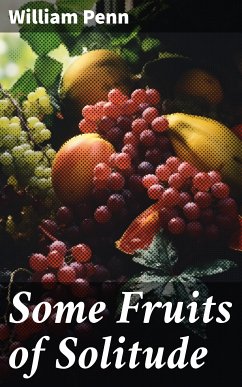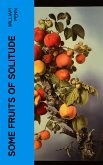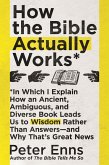In "Some Fruits of Solitude," William Penn explores the philosophical and spiritual dimensions of solitude, presenting a meditative reflection on the human condition amidst the cacophony of society. Written in a fluent yet poignant prose style, the text serves as a series of thought-provoking aphorisms, encouraging readers to contemplate their inner lives and embrace the quietude that solitude can afford. Set against the backdrop of 17th-century Quaker thought, Penn's work interweaves themes of personal introspection, moral rectitude, and the pursuit of divine understanding, reflecting the socio-religious turmoil of his time and his commitment to peace and reconciliation. William Penn, a notable Quaker leader and advocate for religious freedom, penned this profound work following his tumultuous experiences with authority and exile. His deep commitment to contemplative thought and societal reform is evident throughout his writings, which often aim to inspire individuals toward personal and collective transformation. The clarity of his insights into solitude arises from both his personal struggles and his desire to create a more harmonious society. "Some Fruits of Solitude" invites readers to engage with their innermost thoughts, making it an essential read for anyone seeking tranquility in a noisy world. Penn's wisdom resonates across the ages, offering timeless guidance on the value of introspection and self-awareness. This book not only enriches the mind but also nurtures the soul, ensuring its place on the shelves of those who cherish literature that enlightens and inspires.
Dieser Download kann aus rechtlichen Gründen nur mit Rechnungsadresse in A, B, BG, CY, CZ, D, DK, EW, E, FIN, F, GR, H, IRL, I, LT, L, LR, M, NL, PL, P, R, S, SLO, SK ausgeliefert werden.









